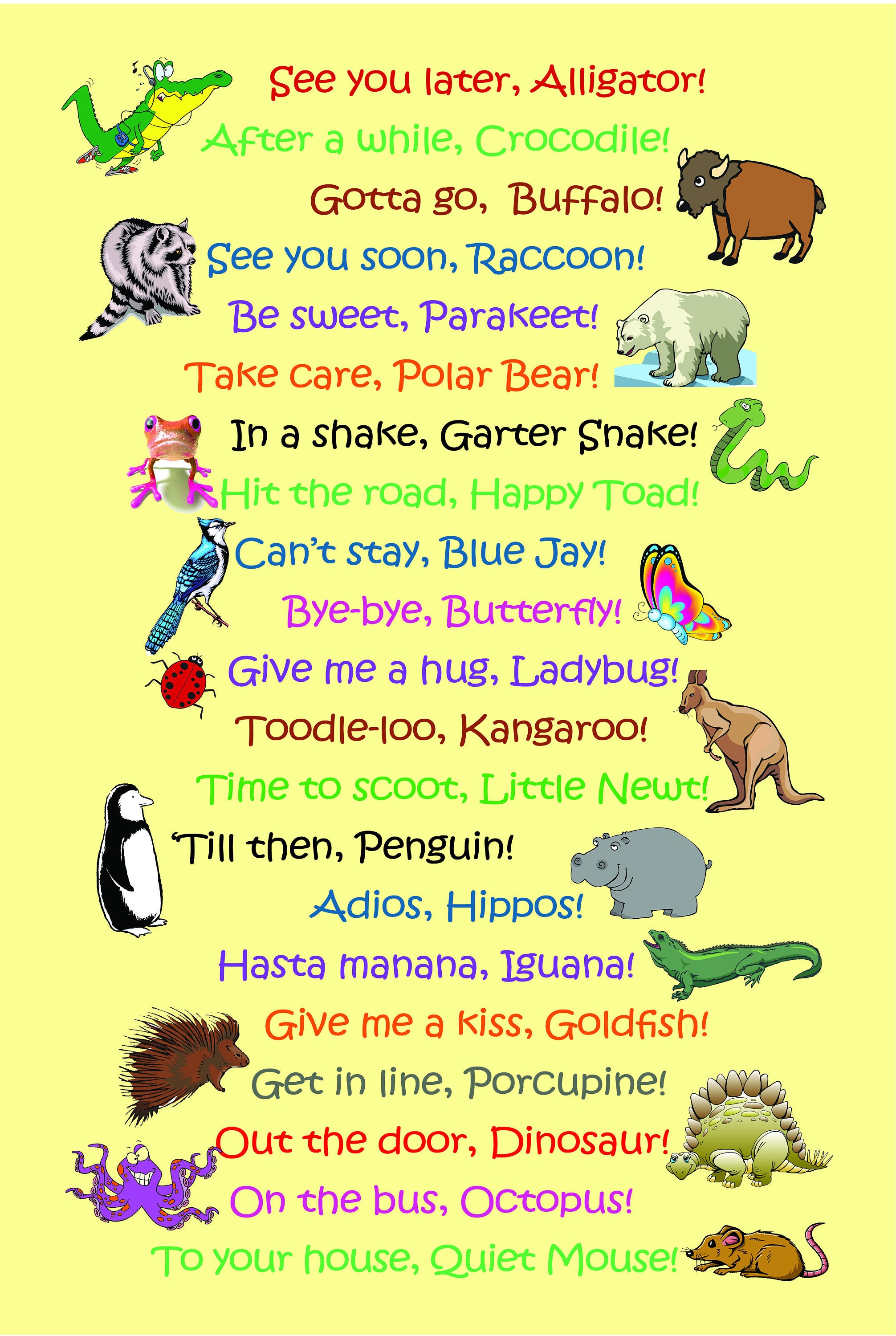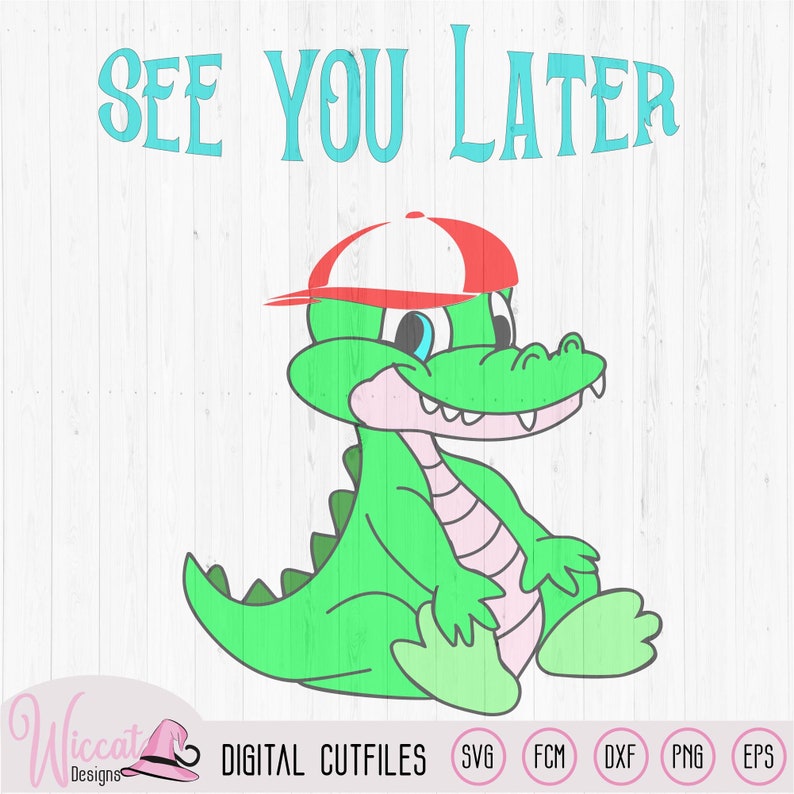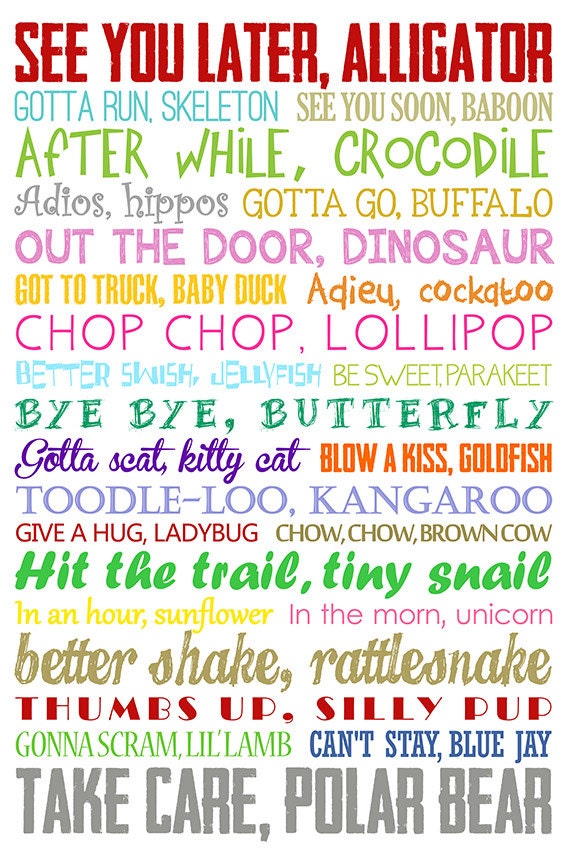Say Goodbye With See You Later, Alligator Sayings!
Ever wondered how a simple phrase could encapsulate so much charm and history? The enduring appeal of "See you later, alligator" lies in its whimsical nature and the joyous echo it creates, turning a mundane goodbye into a memorable moment.
This playful expression isn't just a throwaway line; it's a cultural touchstone, a linguistic wink that has resonated across generations. Born in the mid-20th century, "See you later, alligator" slithered its way into the American vernacular, quickly becoming a favorite of teenagers and young adults. Its catchy rhythm and lighthearted sentiment made it the perfect emblem of a casual farewell, perfect for playgrounds, sock hops, and soda shop meetups.
But where did this reptilian rhyme originate? The truth is, the words themselves are more important than their literal meaning. They represent a creative and informal way of saying farewell, a sentiment thats universally understood and appreciated. It is an invitation to respond with a creative and amusing rhyming comeback. The most popular and expected rejoinder? The equally endearing, "After a while, crocodile." These phrases are a testament to the power of simplicity and the joy of spontaneous wordplay.
The phrases popularity was boosted by its appearances in various forms of media. Movies, television, and music all played a crucial role in its ascent. It wasn't just a saying; it was a cultural statement, a way of expressing a cool, upbeat attitude. In the era of rock and roll and youthful rebellion, "See you later, alligator" became the quintessential goodbye.
Looking beyond the alligator and crocodile, a whole menagerie of rhyming alternatives has emerged. The playful exchange invites imaginative responses, turning ordinary farewells into opportunities for laughter and connection. The creative possibilities are endless and are perfect for anyone who wants to add a bit of extra flair to their goodbyes. So, with a dash of imagination, the humble goodbye has transformed into something truly unique.
Consider some of the following options:
- "Stay cool, see ya!"
- "Later skater!" (for a more casual vibe)
- "See ya, don't forget to wear sunscreen!"
- "In a shake, garter snake!"
- "Hit the road, happy toad!"
- "Time to scoot, little newt!"
- "Catch you on the flip side, crocodile!"
These alternatives tap into the same spirit of fun and creativity, making the act of parting a little more memorable. They are a reminder that a simple goodbye can become an opportunity for a shared moment of levity and amusement. It is about more than just the words; its about the feeling they create.
The evolution of the phrase showcases how language can adapt and evolve. From its origins in the United States during the 1950s, "See you later, alligator" has made its way across generations and cultures. Now, it continues to be a testament to the enduring power of words and their ability to bring people together.
The magic of "See you later, alligator" rests in its simplicity. Its a linguistic gesture that carries a wealth of cultural context. It is a cheerful reminder of a time when life was a little less complicated, a little more playful, and a whole lot of fun. Next time you say goodbye, consider adding some extra joy to your farewells with a classic or create a whole new one!
While "See you later, alligator" and its associated phrases are common in many contexts, there is no one specific individual associated with the origin of these phrases. It's a piece of popular culture that originated in the United States during the 1950s and spread through informal settings, music, and media. There's no single author or "creator" that can be attributed to the phrases themselves. It's a beautiful example of language and culture that organically evolved.
| Category | Details |
|---|---|
| Origin | United States |
| Time Period | 1950s |
| Type | Slang |
| Purpose | Casual and Playful Goodbye |
| Spread | Media (Music, Movies, Television), Informal Settings |
| Notable Characteristic | Rhyming Nature |
The influence of "See you later, alligator" extends beyond its words. Its a reminder of the role of music, movies, and television in shaping culture. From the soundtracks of jukeboxes to the scripts of classic sitcoms, the phrase found a home in various media formats, cementing its place in the collective consciousness.
The creative alternatives that follow share the same ethos. They're not about literal reptiles, but rather the playful spirit of rhyming and wordplay that makes parting a little more fun. The possibilities are endless, offering a platform for personalized goodbyes that resonate with the lightheartedness and casualness of the original phrase. This is a testament to the power of simple, yet memorable expressions.


